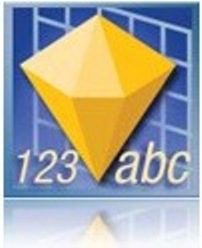Related Research Articles

Common Lisp (CL) is a dialect of the Lisp programming language, published in American National Standards Institute (ANSI) standard document ANSI INCITS 226-1994 (S2018). The Common Lisp HyperSpec, a hyperlinked HTML version, has been derived from the ANSI Common Lisp standard.

Cygwin is a Unix-like environment and command-line interface for Microsoft Windows.

Genera is a commercial operating system and integrated development environment for Lisp machines created by Symbolics. It is essentially a fork of an earlier operating system originating on the Massachusetts Institute of Technology (MIT) AI Lab's Lisp machines which Symbolics had used in common with Lisp Machines, Inc. (LMI), and Texas Instruments (TI). Genera was also sold by Symbolics as Open Genera, which runs Genera on computers based on a Digital Equipment Corporation (DEC) Alpha processor using Tru64 UNIX. In 2021 a new version was released as Portable Genera which runs on Tru64 UNIX on Alpha, Linux on x86-64 and Arm64 Linux, and macOS on x86-64 and Arm64. It is released and licensed as proprietary software.
POP-11 is a reflective, incrementally compiled programming language with many of the features of an interpreted language. It is the core language of the Poplog programming environment developed originally by the University of Sussex, and recently in the School of Computer Science at the University of Birmingham, which hosts the main Poplog website.
Dynamic compilation is a process used by some programming language implementations to gain performance during program execution. Although the technique originated in Smalltalk, the best-known language that uses this technique is Java. Since the machine code emitted by a dynamic compiler is constructed and optimized at program runtime, the use of dynamic compilation enables optimizations for efficiency not available to statically-compiled programs except through code duplication or metaprogramming.
An incremental compiler is a kind of incremental computation applied to the field of compilation. Quite naturally, whereas ordinary compilers make a so-called clean build, that is, (re)build all program modules, an incremental compiler recompiles only modified portions of a program.
POP-2 is a programming language developed around 1970 from the earlier language POP-1 by Robin Popplestone and Rod Burstall at the University of Edinburgh. It drew roots from many sources: the languages Lisp and ALGOL 60, and theoretical ideas from Peter J. Landin. It used an incremental compiler, which gave it some of the flexibility of an interpreted language, including allowing new function definitions at run time and modification of function definitions while a program runs, without the overhead of an interpreted language.

In computer programming, Franz Lisp is a discontinued Lisp programming language system written at the University of California, Berkeley by Professor Richard Fateman and several students, based largely on Maclisp and distributed with the Berkeley Software Distribution (BSD) for the Digital Equipment Corporation (DEC) VAX minicomputer. Piggybacking on the popularity of the BSD package, Franz Lisp was probably the most widely distributed and used Lisp system of the 1970s and 1980s.

Racket is a general-purpose, multi-paradigm programming language and a multi-platform distribution that includes the Racket language, compiler, large standard library, integrated development environment (IDE), development tools, and a set of additional languages including Typed Racket, Swindle, FrTime, Lazy Racket, R5RS & R6RS Scheme, Scribble, Datalog, Racklog, ALGOL 60 and several teaching languages.
S-PLUS is a commercial implementation of the S programming language sold by TIBCO Software Inc.

Allegro Common Lisp is a programming language with an integrated development environment (IDE), developed by Franz Inc. It is a dialect of the language Lisp, a commercial software implementation of the language Common Lisp. Allegro CL provides the full American National Standards Institute (ANSI) Common Lisp standard with many extensions, including threads, CLOS streams, CLOS MOP, Unicode, SSL streams, implementations of various Internet protocols, OpenGL interface. The first version of Allegro Common Lisp was finished at the end of 1986, originally called Extended Common Lisp. Allegro CL is available for many operating systems including Microsoft Windows (32/64-bit), and many Unix and Unix-like, 32-bit or 64-bit, including macOS, Linux (32/64-bit), FreeBSD (32-bit), Solaris, UNICOS, and UTS. Internationalization and localization support is based on Unicode. It supports various external text encodings and provides string and character types based on Universal Coded Character Set 2 (UCS-2). Allegro CL can be used with and without its integrated development environment (IDE), which is available for Windows, Linux, and on macOS in version 8.2. The IDE includes development tools including an editor and an interface designer. Allegro CL can be used to deliver applications.

Linux is a family of open-source Unix-like operating systems based on the Linux kernel, an operating system kernel first released on September 17, 1991, by Linus Torvalds. Linux is typically packaged as a Linux distribution (distro), which includes the kernel and supporting system software and libraries, many of which are provided by the GNU Project. Many Linux distributions use the word "Linux" in their name, but the Free Software Foundation uses and recommends the name "GNU/Linux" to emphasize the use and importance of GNU software in many distributions, causing some controversy.

IBM SPSS Modeler is a data mining and text analytics software application from IBM. It is used to build predictive models and conduct other analytic tasks. It has a visual interface which allows users to leverage statistical and data mining algorithms without programming.

PicoLisp is a programming language, a dialect of the language Lisp. It runs on operating systems including Linux and others that are Portable Operating System Interface (POSIX) compliant. Its most prominent features are simplicity and minimalism. It is built on one internal data type: a cell. On the language level, a programmer can use three different data types being represented by cells and differentiated by bits at the end of the cell. It is free and open-source software released under an MIT License (X11).
In computer programming, self-hosting is the use of a program as part of the toolchain or operating system that produces new versions of that same program—for example, a compiler that can compile its own source code. Self-hosting software is commonplace on personal computers and larger systems. Other programs that are typically self-hosting include kernels, assemblers, command-line interpreters and revision control software.
References
- ↑ Smith, Robert; Sloman, Aaron; Gibson, John (1992). "Poplog's two-level virtual machine support for interactive languages". In Sleeman, D.; Bernsen, N. (eds.). Research Directions in Cognitive Science Volume 5: Artificial Intelligence. Lawrence Erlbaum Associates. pp. 203–231.
- ↑ "Company News: Electronic Data Wins in Offer for SD-Scicon". The New York Times. 17 August 1991.
- ↑ http://www.cs.bham.ac.uk/research/projects/poplog/figs/jpg/smart-poplog-5million.jpg [ bare URL image file ]
- ↑ The Free Poplog Portal
- ↑ Khabaza, Tom. (1999). The Story of Clementine
- ↑ See page 3 of the May 20 1992 Sussex University Bulletin
- ↑ OpenPoplog
